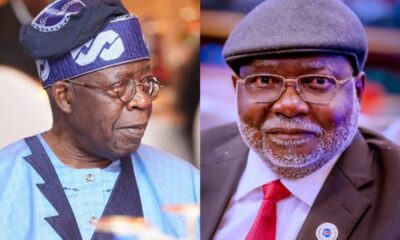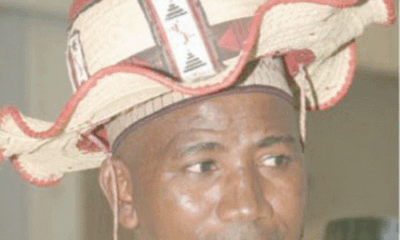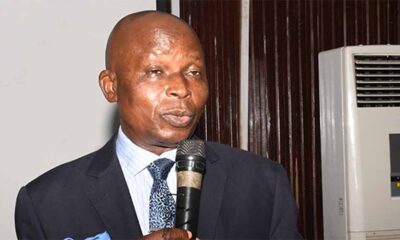Africa
UNOCT, ECOWAS sign agreement to strengthen cooperation on preventing, countering terrorism

UNOCT, ECOWAS sign agreement to strengthen cooperation on preventing, countering terrorism
The United Nations Office of Counter-Terrorism, UNOCT, and ECOWAS signed a Memorandum of Understanding, MoU to strengthen their partnership in preventing and countering terrorism and violent extremism.
The MoU establishes a framework for cooperation between both entities over the next five years on a range of security and counter-terrorism initiatives, including preventative efforts to counter terrorist travel, financing, access to weapons and misuse of information and communications technologies; border security and management; prosecution, rehabilitation and reintegration, PRR, and the delivery of counter-terrorism training programmes in Africa.
The agreement also makes provisions for UNOCT support to ECOWAS and its Member States in the implementation of the ECOWAS 2020-2024 Action Plan on Eradicating Terrorism.
The MoU was signed by Omar Alieu Touray, President of the ECOWAS Commission, and Vladimir Voronkov, United Nations Under-Secretary-General for Counter-Terrorism, during a bilateral meeting on the margins of the 78th session of the United Nations General Assembly High-Level Week.
Under-Secretary-General Voronkov welcomed the signing noting that it marks a pivotal moment, as it establishes a comprehensive cooperation framework for the next 5 years.
READ ALSO:
- Coup: French soldiers, ambassador will depart Niger – Macron
-
BREAKING: Troops rescue 7 kidnapped Zamfara university students
-
Just in: Fire guts Supreme Court building
Touray expressed ECOWAS commitment to the collaboration with the UN through UNOCT to address the multifaceted dimensions of terrorism, including the root causes such as youth empowerment, the fight against human rights violations and other governance deficits.
Following the signing, ECOWAS and UNOCT will develop a joint plan of action to put the agreement into practice, building on existing coordination platforms, such as the AU-UN Technical Working Group on Counter-Terrorism and PCVE. They will also explore opportunities to develop and undertake joint or collaborative activities with the United Nations Global Counter-Terrorism Coordination Compact.
Moreover, jointly organize workshops, conferences, or other meetings and activities on topics and issues related to CT/PCVE, bringing together the relevant stakeholders at the global, regional, or national levels.
Yesterday (21 Sept.), ECOWAS participated in the Ministerial-Level meeting of African Member States on “Strengthening Regional Cooperation and Institution Building to Address the Evolving Threat of Terrorism in Africa” co-organized by Nigeria and UNOCT.
The meeting provided African Member States and regional organizations an opportunity to share their views on the prevailing terrorism threat scenarios in Africa and propose actionable and outcome-oriented recommendations for the African Counter-Terrorism Summit (“Abuja Summit”) co-organized by UNOCT and Nigeria, which will be held in Abuja on 23-24 April.
The Summit will seek to enhance multilateral counter-terrorism cooperation and reshape the international community’s collective response to terrorism in Africa.
UNOCT, ECOWAS sign agreement to strengthen cooperation on preventing, countering terrorism
Africa
Chad’s military ruler Derby declared winner of presidential election, opposition kicks
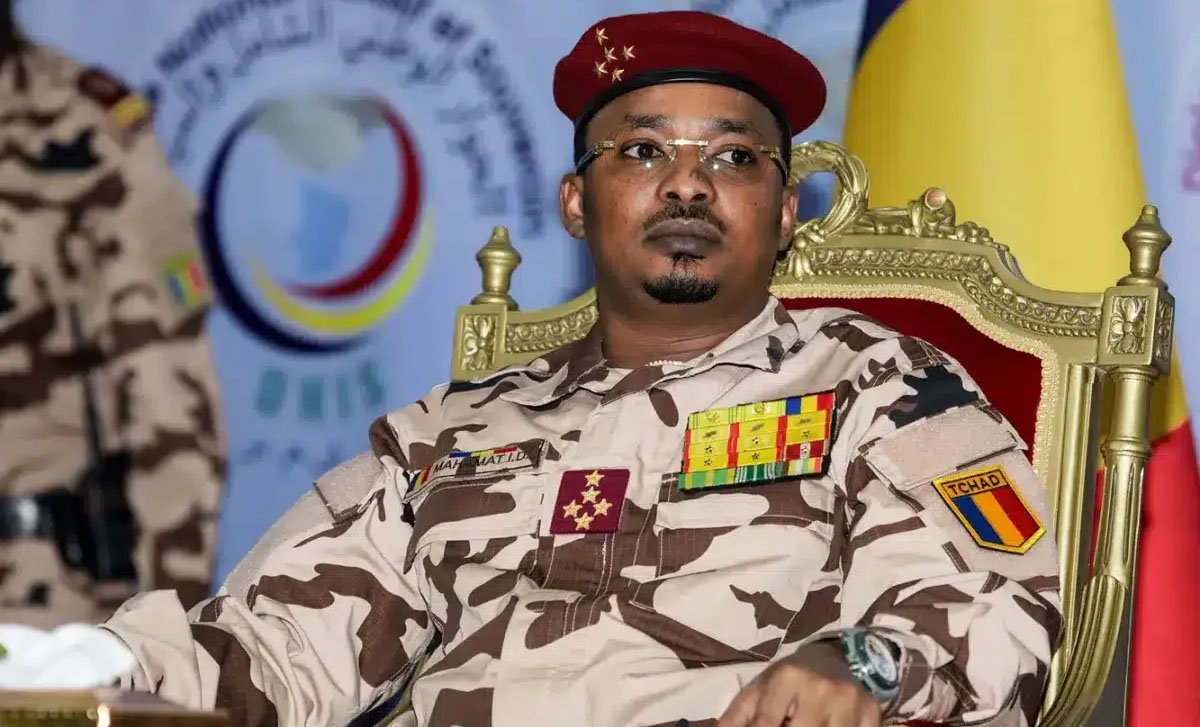
Chad’s military ruler Derby declared winner of presidential election, opposition kicks
Chad’s military leader, Mahamat Deby Itno, was declared the winner of this week’s presidential election, according to provisional results released Thursday. The results were contested by his main rival, Prime Minister Succès Masra.
The national agency that manages Chad’s election released results of Monday’s vote weeks earlier than planned. The figures showed Deby Itno won with just over 61% of the vote, with the runner-up Masra falling far behind with over 18.5% of the vote. Gunfire erupted in the capital following the announcement, though it was unclear if it was celebratory.
Preliminary results were initially expected on May 21.
Chad held its long delayed presidential election following three years of military rule, a vote that analysts widely expected the incumbent to win. Deby Itno, also known as Mahamat Idriss Deby, seized power after his father, who spent three decades in power, was killed fighting rebels in 2021.
READ ALSO:
- Detained reporter Daniel Ojukwu regains freedom after public outcry
- Rivers Assembly speaker says house leadership intact
- No change in leadership of Rivers assembly, clerk disowns Fubara’s faction
The oil-exporting country of nearly 18 million people hasn’t had a free-and-fair transfer of power since it became independent in 1960 after decades of French colonial rule.
Hours ahead of Thursday’s announcement, Masra published a speech on Facebook accusing the authorities of planning to manipulate the outcome.
During the 11-minute speech, Masra appeared in a blue suit at a podium with the national flag in the background and claimed victory, saying the incumbent was planning to reverse the outcome of the vote. He called on Chad’s military, police and other security forces to stop following Deby Itno’s orders.
“These orders will lead you to side with the wrong side of Chad’s history, these orders will lead you to fight your brothers and sisters, these orders will lead you to commit the irreparable and unforgivable,” he said in the speech. “Refuse to obey these unjust orders!”
There was no immediate response from the president’s office.
Chad’s military ruler Derby declared winner of presidential election, opposition kicks
Africa
Civil societies, Togo president on war path over new constitution eliminating elections

Civil societies, Togo president on war path over new constitution eliminating elections
The hope of having new leader in Togo has been dashed following the abolition of presidential elections in the West Africa country.
The development follows the signing of a controversial and widely condemned new constitution by President Faure Gnassingbe
The new constitution does not allow for election to the highest office in the land, an arrangement that will see the Gnassingbes consolidate their hold on power and extend their six-decade-long rule.
A statement from Gnassingbe’s office on Monday stated that, under the new legislation, only the parliament will have the power to select the president, eliminating direct elections.
According to Africa News, the election commission on Saturday announced that Gnassingbe’s ruling party had won a majority of seats in the nation’s parliament.
The report revealed that there was a crackdown on civic and media freedoms ahead of the vote, as the government banned protests against the proposed new constitution and arrested opposition figures.
READ ALSO:
- Rivers crisis festers as new factional Speaker emerges
- Cybersecurity levy suspension tears lawmakers apart, speaker overrules
- EFCC to arraign Sirika, daughter over fresh N2.7 billion contract scam
Also, the electoral commission banned the Catholic Church from deploying election observers.
In mid-April, a French journalist who arrived to cover the elections was arrested, assaulted and expelled. Togo’s media regulator later suspended the accreditation process for foreign journalists.
Provisional results showed the ruling Union for the Republic (UNIR) party won 108 out of 113 seats in parliament, and 137 out of 179 positions in the senate.
The new constitution also increases presidential terms from five to six years and introduces a single-term limit.
However, the almost 20 years that Gnassingbe has already served in office would not count toward that tally.
Togo has been ruled by the same family for 57 years, initially by Eyadema Gnassingbe and then by his son, Faure Gnassingbe, who took office after elections that the opposition described as a “sham.”
The political opposition, religious leaders and civil society say the proposed new constitution makes it likely that Gnassingbe will stay on when his mandate expires in 2025.
They also fear that the creation of a figure similar to a prime minister, to be selected from the ruling party, could become another avenue for Gnassingbe to extend his grip on power even beyond that new term.
Civil societies, Togo president on war path over new constitution eliminating elections
Africa
Father mourns 14-year-old daughter poisoned at school, says ‘I’ve failed you my baby’

Father mourns 14-year-old daughter poisoned at school, says ‘I’ve failed you my baby’
A father has mourned his 14-year-old daughter, Nomfundo Palesa Tyler Khumalo, who was allegedly poisoned at her school in South Africa.
It was gathered that the incident happened on 8 April 2024 and she passed away on 25 April.
 Details surrounding the circumstances of her death remain unclear.
Details surrounding the circumstances of her death remain unclear.
A murder case has been opened, and investigations are underway.
The family of Nomfundo is currently struggling to deal with the loss and seeking answers as to why and by whom she was targeted.
READ ALSO:
- Zamfara APC defends Mattawale, says protesters are rented crowd
- SERAP sues Wike, 36 govs over N5.9tn, $4.6bn loans
- Chelsea thrash West Ham to stay on track for Europe
Nomfundo’s father, Gift, on Sunday, May 5, wrote a heartfelt message on X to pay tribute to her.
“Never in my wildest dreams did I think you would end up on this page I’ve failed you my baby , should’ve protected you better we even spoke about you being home schooled after you recover unfortunately.. I’m so sorry If Possible I’d easily give up my life for yours,” he wrote on Sunday, May 5.
In an earlier post, he wrote: “I wish the after life is kinder to souls as precious as yours , there is no boundry for my love to you my baby Not even Death itself Don’t forget to visit us in our dreams more exp your Mother It’s never goodbye when there an after life promised I’ll see you soon my child.”
Father mourns 14-year-old daughter poisoned at school, says ‘I’ve failed you my baby’
-

 Business1 day ago
Business1 day agoDollar crashes against Naira at official market
-

 metro1 day ago
metro1 day agoThree police officers sentenced to life imprisonment in Anambra
-

 News18 hours ago
News18 hours agoUpdated: Reps condemn assault on Nasarawa female doctor by patient family
-

 metro2 days ago
metro2 days agoNigerian who killed wife in UK bags life jail
-

 Aviation21 hours ago
Aviation21 hours agoUpdated: We’ll resume Lagos-Dubai flights on October 1, says Emirates
-
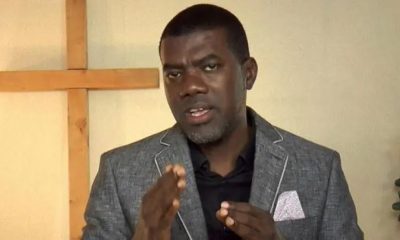
 News1 day ago
News1 day agoWike, Fubara are ego-driven, crude – Reno Omokri
-

 Education3 days ago
Education3 days agoBREAKING: ASUU threatens fresh nationwide strike over federal varsities’ condition
-

 Auto2 days ago
Auto2 days ago150 OEMs, others set for Lagos motor fair, Africa autoparts expo



